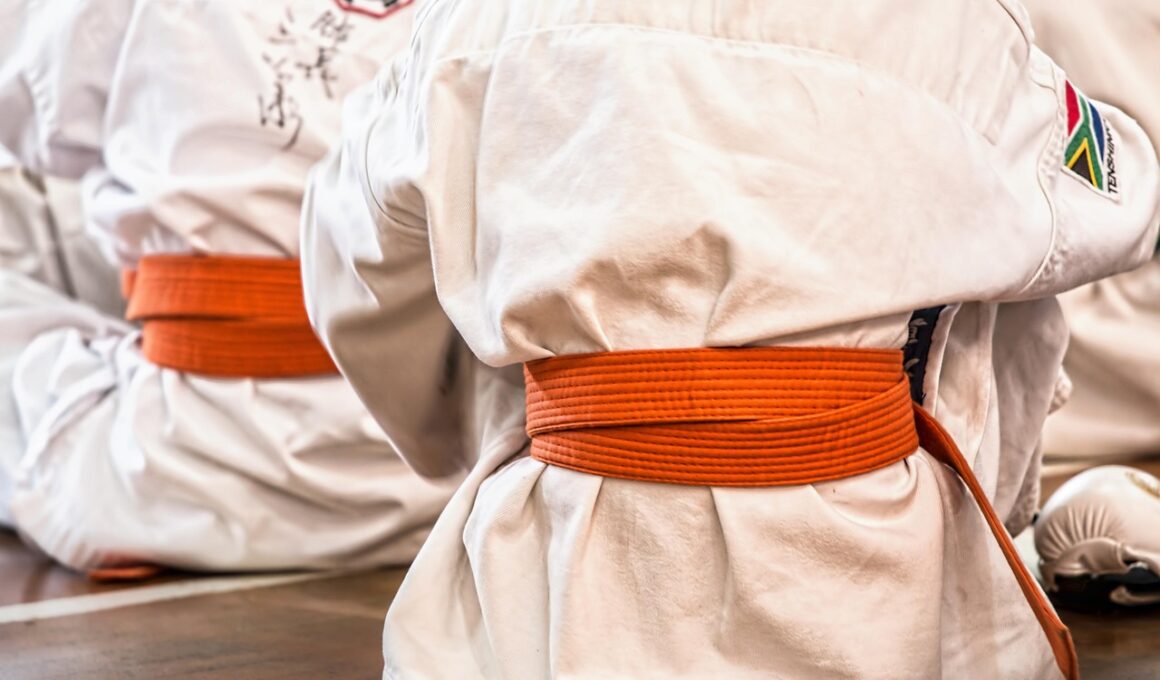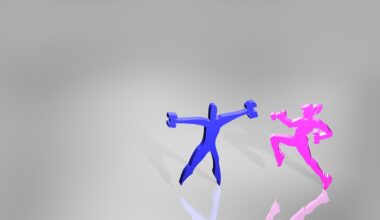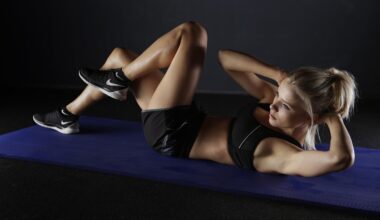Martial Arts and Aging: Staying Fit and Active at Any Age
As we age, maintaining our physical and mental health becomes increasingly important. Martial arts offer an effective way for older adults to stay fit, agile, and mentally sharp. Engaging in martial arts training promotes physical cardiovascular health, enhances flexibility, and increases muscle strength. Moreover, martial arts can boost confidence, self-discipline, and overall mental wellness. A well-lit dojo or training area can create an inviting atmosphere for practitioners, reinforcing motivation and commitment. When older adults step onto the mat, they find a welcoming community to share experiences, which can help with feelings of loneliness. Furthermore, martial arts teach valuable self-defense techniques, empowering practitioners to feel secure and assertive in their daily lives. Older adults can benefit significantly from tailored martial arts classes designed to suit their fitness levels. From tai chi to karate, there are several styles to explore. By choosing the right martial arts discipline, seniors can experience profound benefits that influence their overall quality of life and longevity. Courage, resilience, and adaptability are nurtured through consistent practice, which contributes to a healthier aging process in today’s society.
The Physical Benefits of Martial Arts
When considering the physical benefits of martial arts for aging individuals, it’s essential to highlight key aspects. First, martial arts enhance balance and coordination, which reduce the likelihood of falls and injuries. Regular practice contributes to improved strength, as movements often require resistance and muscle engagement. Participants benefit from enhanced flexibility through dynamic stretching and various techniques involved in training routines. Cardiovascular fitness sees improvement as martial arts training involves high-intensity workouts that encourage heart health. This can help combat age-related decline in physical abilities, thus maintaining vitality. Mental acuity is sharpened due to the focus required during classes, helping to bolster cognitive function. Training often introduces sparring or partner drills, fostering teamwork and companionship among students, further enriching their social lives. Moreover, disciplines like tai chi are specifically designed for gentle movement and can provide calming meditation effects. Aging individuals can experience a form of stress relief important for maintaining emotional well-being. The motivational aspect of being part of a group encourages accountability and consistent practice, essential for achieving fitness goals and enhancing overall happiness as one ages gracefully through martial arts participation.
Many older adults may hesitate to try martial arts due to misconceptions about its difficulty and physical demands. However, numerous martial arts disciplines are suitable for people of all ages and abilities. Starting with beginner classes is a great way to ease into practice without feeling overwhelmed. Instructors usually modify techniques and workouts to match participants’ fitness levels and capabilities, ensuring a supportive learning environment. Self-paced training allows older practitioners to build endurance gradually, fostering a strong sense of accomplishment. Additionally, many martial arts schools emphasize the importance of safety and injury prevention, making them an excellent choice for those concerned about physical limitations. It’s important to communicate openly with instructors about any existing injuries or concerns so they can tailor classes accordingly. Many practitioners find martial arts not only physically rewarding but also mentally and emotionally uplifting. Building friendships and camaraderie in martial arts can significantly reduce feelings of isolation experienced by seniors. With proper adaptations, martial arts can become a lifelong pursuit that enriches the quality of life for older individuals. The key is to approach training with an open mind and a commitment to personal growth through continuous practice.
Choosing the Right Martial Art
Selecting the most suitable martial art can be challenging for seniors, given the variety of styles available. Each martial art offers unique benefits and different focuses, making the choice paramount for a pleasant experience. Traditional styles like karate and judo provide a combination of physical exercise and self-defense techniques. This promotes confidence while improving strength and coordination. Alternatively, tai chi focuses on slow, flowing movements that enhance flexibility and mental clarity, perfect for those seeking a gentler approach. Aikido emphasizes fluid motion and self-defense without the need for brute strength, making it appealing for those worried about joint strain. Seniors should attend introductory classes to assess compatibility with instructors and fellow students. Engaging with various styles helps determine personal preferences and goals. Instructors can provide invaluable insights about the suitability of each style for individual needs. Moreover, practitioners should take time to visit multiple dojos or studios, observing class dynamics and training methods. Friends or families can join sessions together, which fosters encouragement and accountability. Ultimately, the right choice in martial art reduces barriers to training and paves the way for a fulfilling martial arts journey throughout the aging process.
Fitness is not just about working out; it’s also about building habits that sustain long-term wellness. Training in martial arts encourages the development of a disciplined mindset, emphasizing consistency and ongoing practice. Older adults can set realistic goals to monitor their progress, integrating martial arts into their daily lives seamlessly. This could involve practicing forms at home, dedicating time for strength training, or participating in community events like demo days or exhibitions. Nutrition plays an essential role in enhancing performance; therefore, educating oneself about proper eating habits helps improve overall energy levels. Staying hydrated during classes ensures resiliency and endurance during practice sessions. As energy levels maximize, so too does the enjoyment experienced while training. There are online tools and fitness apps designed to help individuals track their nutritional intake and fitness progress. This coupled with participation in martial arts creates a well-rounded lifestyle that supports healthy aging. Seniors are encouraged to embrace change related to fitness goals, ensuring a flexible approach to accommodate various life circumstances. Remember, every step taken towards improvement counts immensely, leading to enhanced physical health and a stronger sense of self-confidence for aging practitioners.
Building Community Through Practice
One of the most rewarding aspects of martial arts for older adults is the sense of community it fosters. Practicing alongside peers leads to lasting friendships as participants share similar interests. Building this support network is invaluable as it contributes to emotional well-being. Instructors tend to create a welcoming environment that reinforces respect among practitioners. Seniors often feel empowered when they share victories and challenges in their martial arts journey, strengthening bonds within the group. Socialization is vital for mental health, with friendships formed in classes extending beyond training sessions. Participating in social events, like tournaments and seminars, further enhances community ties. An inclusive dojo will encourage mutual support, fostering proactive relationships among members, which can lead to lifelong connections. Joining martial arts clubs creates a beautiful atmosphere where experiences and techniques are shared freely, encouraging ongoing learning. This community aspect motivates older adults to consistently attend practices, strengthening their commitment to fitness goals. As they cheer for each other’s achievements, seniors develop emotional resilience — learning that success comes through effort and perseverance. Such camaraderie stands as a testament to the importance of martial arts, enriching the lives of older practitioners throughout their golden years.
In summary, engaging in martial arts presents numerous benefits for older adults, promoting both physical and mental well-being. The practice encourages an active lifestyle that empowers individuals to age gracefully while enjoying various forms of exercise. Establishing a consistent training routine fosters resilience, adaptability, and proper habits crucial for long-term health. With the right martial arts discipline, practitioners can experience an invigorating sense of accomplishment through continuous growth. Focusing on personal goals fuels motivation, enabling seniors to overcome obstacles and celebrate milestones. Community-building becomes a central theme as friendships are forged through shared experiences, bolstering emotional support. Adaptations made within classes ensure that every participant finds their own unique path to success. Additionally, the mental clarity developed through martial arts translates positively into everyday life. Choices made toward a healthy lifestyle contribute to enhanced longevity and quality of life. Ultimately, older adults must embrace the journey of martial arts, celebrating each triumph along the way. Opening oneself to new experiences ensures that the aging process encompasses positivity and fulfillment, providing the foundation for a vibrant life. With dedication and practice, martial arts becomes an invaluable tool in achieving a happier, healthier existence well into the later stages of life.



